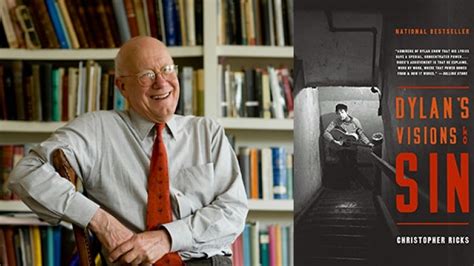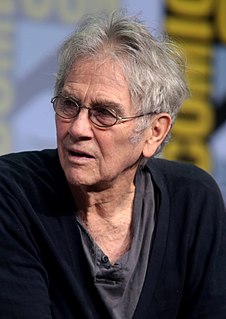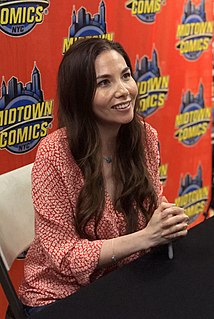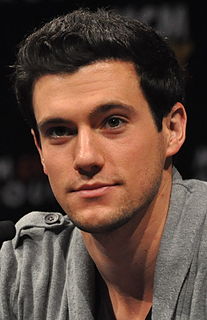A Quote by Christopher Ricks
The fabliau, then, is a short story that is a tall story. It combines a burly blurting of dirty words with a reveling in humiliations that are good unclean fun. A popular venture that is keen to paste—épater—everybody (not just the bourgeoisie), it is the art of the single entendre. Highly staged low life, it guffaws at the pious, the prudish, and the priggish. High cockalorum versus high decorum…. The introduction here, like the translator’s note, tells well the story of the comic tales, anonymous for the most part, usually two or three hundred lines long, of which about 160 exist.
Quote Topics
About
Anonymous
Art
Bourgeoisie
Comic
Decorum
Dirty
Dirty Words
Everybody
Exist
Fun
Good
High
Highly
Hundred
Introduction
Just
Keen
Life
Like
Lines
Long
Low
Most
Note
Part
Pious
Popular
Red Lines
Short
Short Story
Single
Staged
Story
Tales
Tall
Tells
Then
Three
Translator
Two
Venture
Versus
Well
Which
Words
Related Quotes
Comic books are just a way to show a story. Then there are the movies, and television and exhibits like this that take the stories and make them seem so realistic. In the comic book, you're just reading a story - hopefully a good, exciting story that whets your appetite for all of this stuff to come.
Too many writers think that all you need to do is write well-but that's only part of what a good book is. Above all, a good book tells a good story. Focus on the story first. Ask yourself, 'Will other people find this story so interesting that they will tell others about it?' Remember: A bestselling book usually follows a simple rule, 'It's a wonderful story, wonderfully told'; not, 'It's a wonderfully told story.'
I think that when I'm telling a story, I'm doing the best I can to tell the story as fully as I can, and if there are various fractures that happen in the story, then that's just the very thing that the story is as opposed to my looking for avenues of difference in one story. They just really do exist. For me, anyway.
It's hard to tell if anyone's interested in reading a serialized story. But it's interesting to put in a cliffhanger each week. That was popular in old comic strips. They'd write a weekend story different from the daily strip. So people follow one story day to day, and a separate story on weekends. If you read them, you think "I'll read two more." Then you're like "I gotta find out!" And you read 500 more.
Everybody is an expert on one thing - that's what I learned in my high school journalism class - and that's, of course, his own life. And everybody deserves to live and have his story told. And if it doesn't seem like an interesting story, then that's the failure of the listener, or the journalist who retells it badly.
I guess the freedom - poetic freedom - because the poetic part of short story form is an attempt to say something that's unsayable about one's incarcerated existence, and it's fun to come up with words to represent that condition, and it's fun to pull the tail of absurdity and rile it up, where you giggle at what you do or you get enthralled and in the short story.
Alison [McGhee] and I have known each other since the summer of 2001. One evening we were sitting around talking about how we wished we had a good story to work on. Alison said: Why don't we work on a story together? I said: A story about what? And Alison said: A story about a short girl and a tall girl.
What I often do in my work is to take a great story, such as the Odyssey, the search for the Grail, the story of Jesus, or the story of the great peacemaker who helped create the Iroquois Confederacy in the 15th century. I then use these tales as templates upon which to weave psychological and spiritual exercises which allow us to open ourselves up to the larger venue of a story.
I think that people have to have a story. When you tell a story, most people are not good storytellers because they think it's about them. You have to make your story, whatever story it is you're telling, their story. So you have to get good at telling a story so they can identify themselves in your story.




































